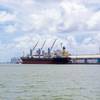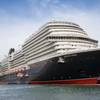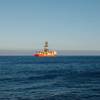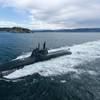The Oil Companies International Marine Forum’s (OCIMF) latest information paper, released on March 13, addresses the use of inert gas for the carriage of flammable oil cargoes.
In the paper, titled Inert Gas Systems: the use of inert gas for the carriage of flammable oil cargoes, OCIMF fully supports the IMO introduction (from January 1, 2016) of the mandatory fitting to new build tankers 8,000 DWT and over, of an inert gas system when carrying flammable cargoes.
“The safety benefits of inert gas in cargo tanks are well recognized throughout the tanker industry,” said OCIMF Director, Andrew Cassels, “Over the years many lives have been lost, or serious injuries sustained, due to incidents involving fires and explosions in cargo tanks on non-inerted tankers transporting flammable oil cargoes. The installation of an inert gas system on oil tankers of all sizes that carry flammable oil cargoes is both technically and operationally feasible.”
Cassels continued, “OCIMF considers there are considerable safety benefits if oil tankers that carry flammable oil cargoes are designed and fitted with a SOLAS compliant inert gas system and operated in such a manner that cargo tanks are maintained in an inert condition.”
OCIMF encourages the fitting of inert gas systems to all new tankers carrying flammable oil cargoes, regardless of size. It also encourages companies to consider retroactively fitting inert gas systems to existing tankers carrying flammable oil cargoes, not already covered by the SOLAS inert gas requirements.











